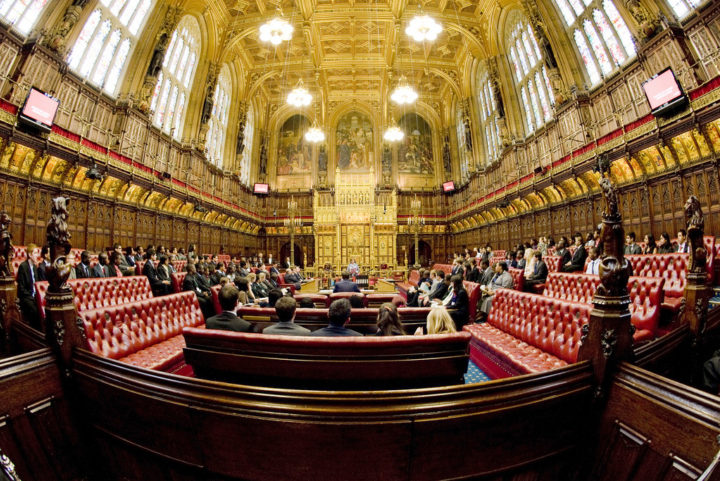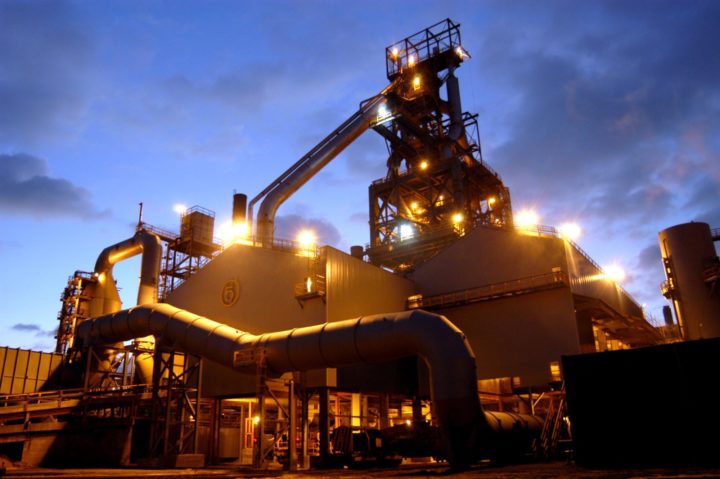The price of getting it wrong?
A new Lords' report 'The Price of Power' takes a dim look at UK energy policy; but is it correct?
By Jonny Marshall
Share
Last updated:
By Dr Jonathan Marshall, ECIU Energy Analyst
In the wake of being labelled ‘London’s best day-care centre’, the House of Lords has had a busy week. While the debate surrounding the UK’s withdrawal from the EU grabbed most of the attention, Friday’s report detailing ‘failures’ in UK energy policy is also likely to make waves.

The heavily-delayed output from a longer-than-expected Economic Affairs Committee inquiry, the report goes into great detail on the problems allegedly affecting UK energy policy - ultimately reaching the conclusion that a secure supply of electricity is essential, with affordability and decarbonisation the second and (by a rather distance) third-ranked concerns respectively.
As such, it makes a number of recommendations that would, if implemented, ultimately favour new fossil-fuelled generation capacity, weakening or missing targets set under the Climate Change Act. A centrepiece is promoting a technologically neutral auction - without providing any meaningful detail on how it would work.
Talking of cuts
Despite overwhelming evidence to the contrary (of which a considerable amount is referenced – and unfortunately ignored), the 13-member committee maintains that the threat of power cuts looms on the UK’s horizon, justifying yet another swing in policy to ensure that ‘the lights stay on’.
A secure and reliable power supply is, of course, essential to UK homes and businesses, and any measures that impact on this should be resolved. However, the UK’s last generation-related outage was back in 2008, the use of contingency measure to keep the lights on is at a long-term low, and the implementation of the capacity market this coming winter ensures that a secure and reliable supply is simply no longer a concern – a point recently made by Steve Holliday after a decade at the helm of National Grid.
In fact, over the past five years, the reliability of the grid has not dipped below 99.999%, prompting Business Secretary Greg Clark to label the UK’s electricity supply as the ‘most reliable in Europe’.
By choosing to favour evidence provided by think-tanks such as the Centre for Policy Studies over that from authoritative bodies such as National Grid, University College London and SSE, Lord Hollick et al appear out-of-touch with a sector that engaged heavily with the investigation, with expert professionals submitting more than 100 pieces of written evidence and attending dozens of hearings.
Those pesky 'hidden costs'
The report also dips into costs faced by UK households and businesses, stating in the summary that successive governments have subsidised the development of renewables, passing costs onto consumers, and that bills have gone up by 58% from 2003 to 2016. Only in the body of the 79-page document do the Lords note that this increase is ‘mainly driven by rising international prices for fossil fuels’.

In a similar vein, the report states that ‘electricity generated by fossil fuels has always been, and remains, cheaper than electricity generated by renewable sources’, ignoring evidence that the report itself presents, clearly showing that onshore wind and large-scale solar PV are cost-comparable with new gas-fired power stations and that renewable energy costs in general are falling.
Resurrecting well-trodden arguments about the system costs of renewables – the additional costs incurred on the grid on top of the purchase of electricity – the Committee states a need for more clarity. Handily, a report released by the UK Energy Research Centre (UKERC) earlier this week did just this; showing that costs are ‘modest’, as long as the grid is sufficiently modernised to make it more flexible. Other studies have gone even further, with a report from consultants Aurora Energy Research late last year detailing how aligned solar and storage can actually have a negative cost - a benefit, in fact. Given that the Committee's star witness Professor Dieter Helm is a director of Aurora, it is a little baffling, on the surface of it, why this report did not feature in the Committee's analysis.
Overall, In failing to take account of the most up-to-date and forward looking studies on systems costs, the Committee has missed a trick, recycling old and disproven arguments at the expense of providing a useful and detailed analysis of an ever-increasing body of evidence.
Steel and nukes
And talking of old arguments; the Lords also take a dim view of the costs incurred by heavy industry, including, notably, steel. Dismissing concerns of ‘substantial industrial lobbying effort’ from the steel sector, the peers ignore evidence from both academia and the Committee on Climate Change in recommending further measures to alleviate heavy industry from policy costs.
A common theme running through the report is Hinkley Point C, with the much-maligned project highlighted as a concern on grounds of cost and likely delays. Sensibly, the Lords request more clarity on how the project will provide good value for money, a question that industry onlookers have been asking for more than a decade. The also look for an explanation on how the capacity will be replaced should the project be delayed – answers to which have already been provided by both then-energy secretary Amber Rudd and in an ECIU report.
Overall, despite the depth to which the investigation went, it is easy to feel disappointed by the output. Some suggestions (such as boosting spending on R&D and increasing clarity on Government decisions) are worth making, although fairly obvious, while others are wider of the mark.
Swingeing changes in policy are simply not what the energy sector needs, having been on the receiving end of uncertainty for several years. Suggesting that the rate of decarbonisation should change would pose a threat to one of the few long-term steers the sector has.
Share